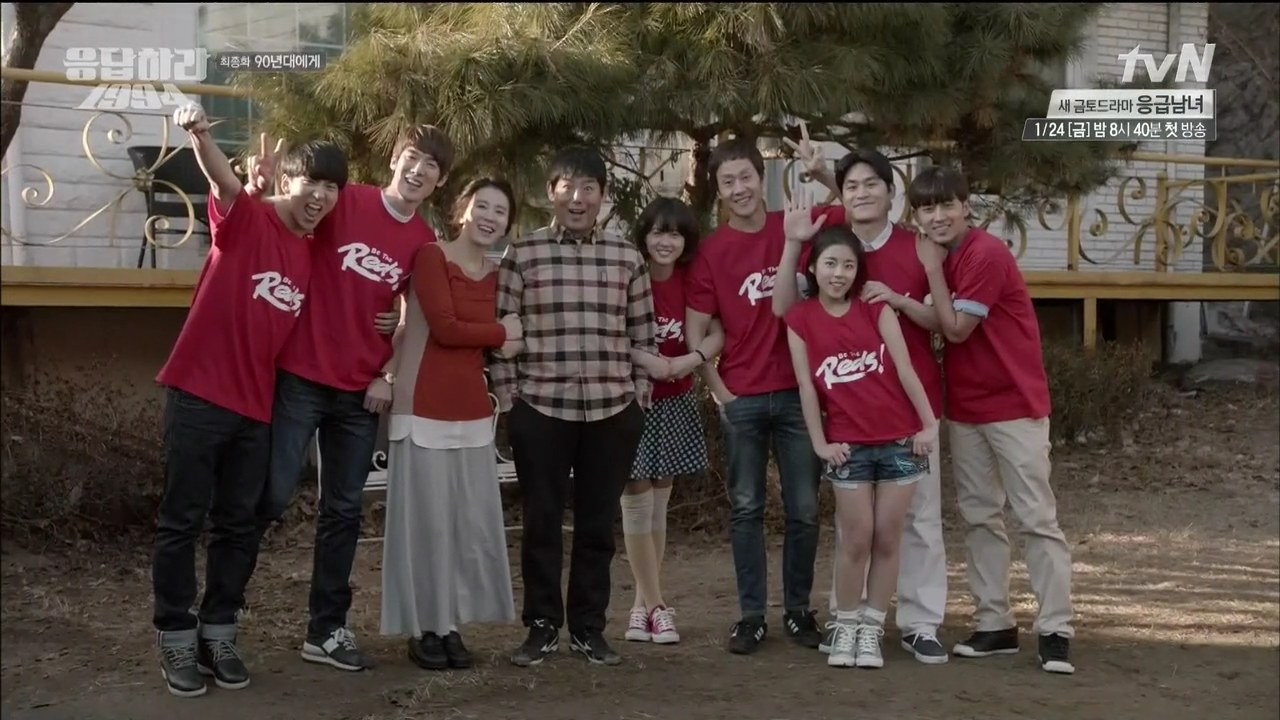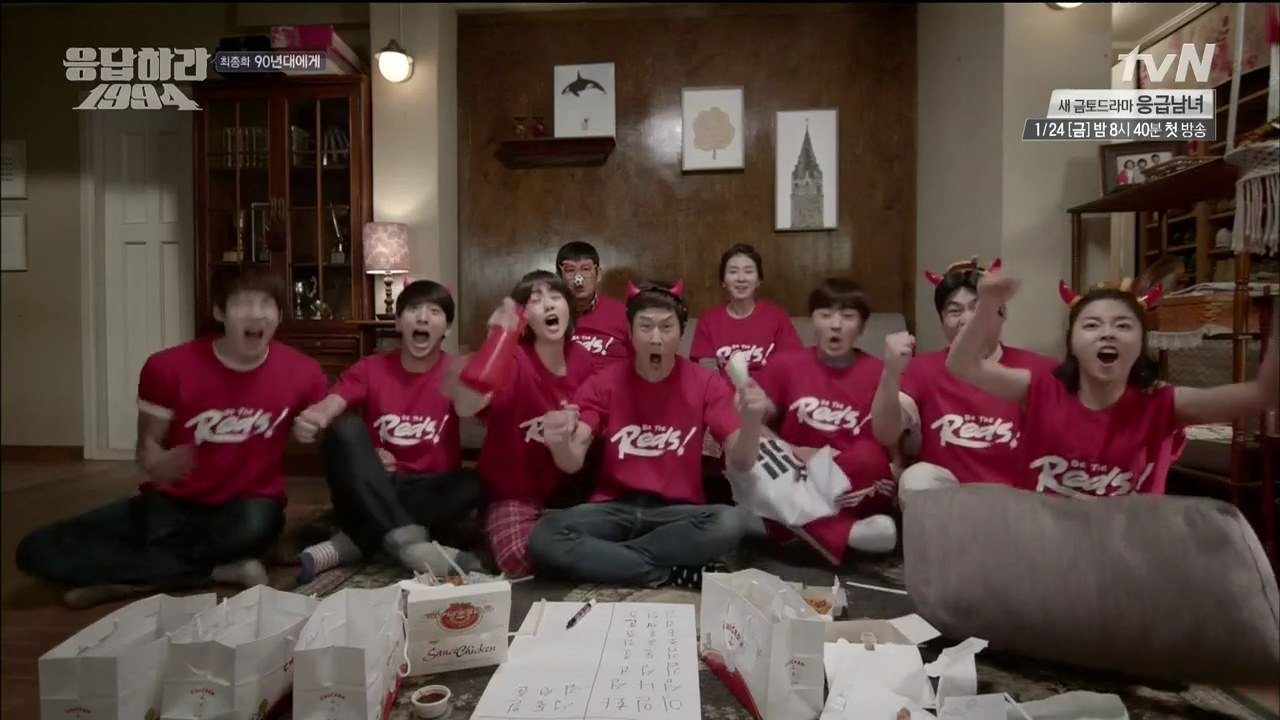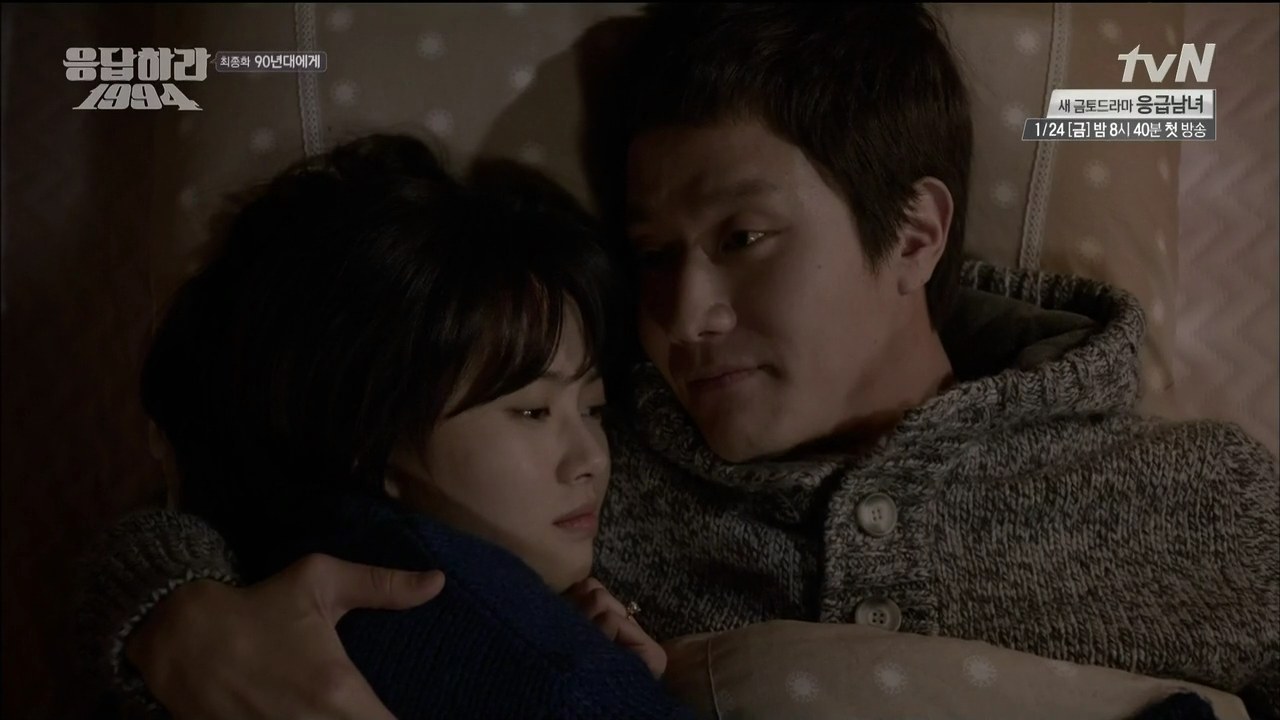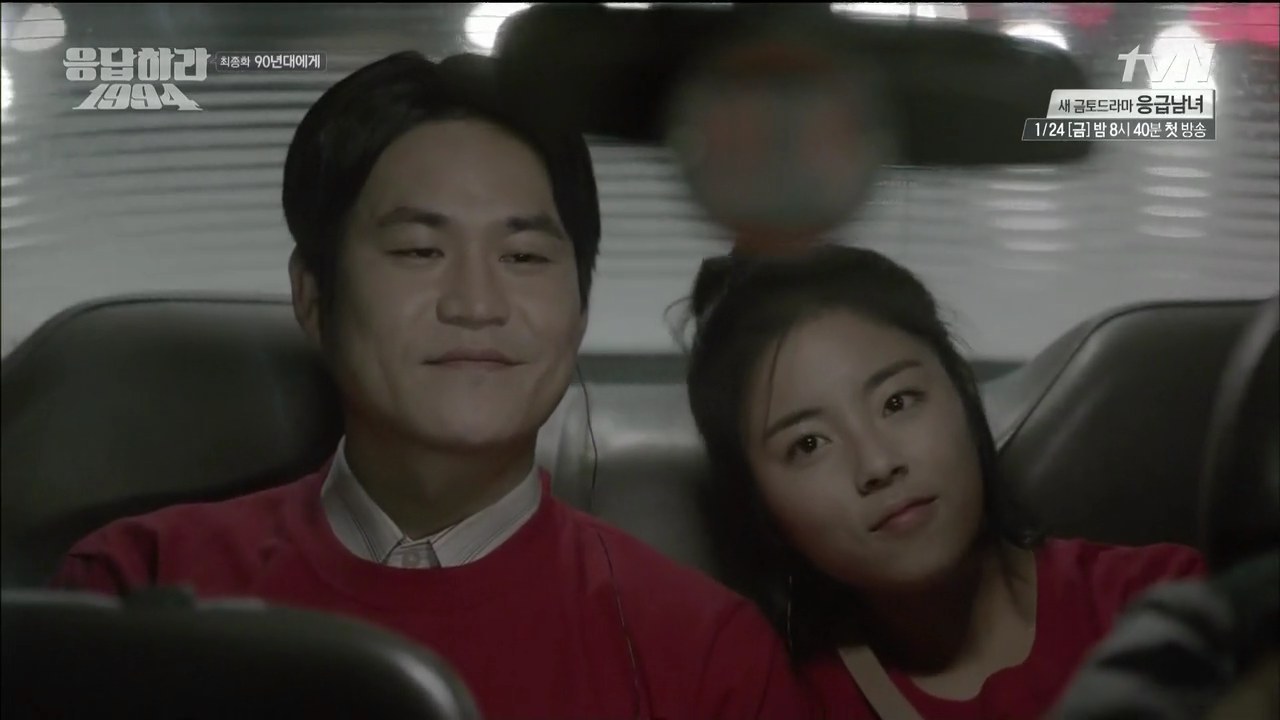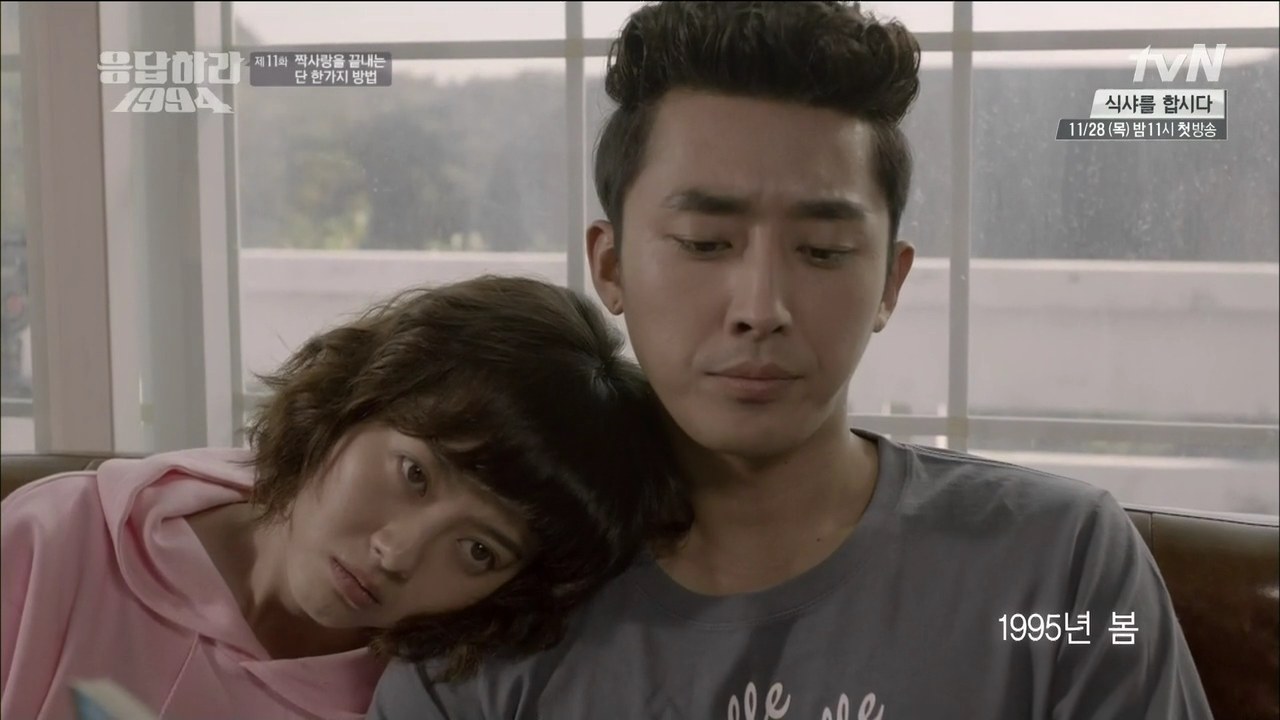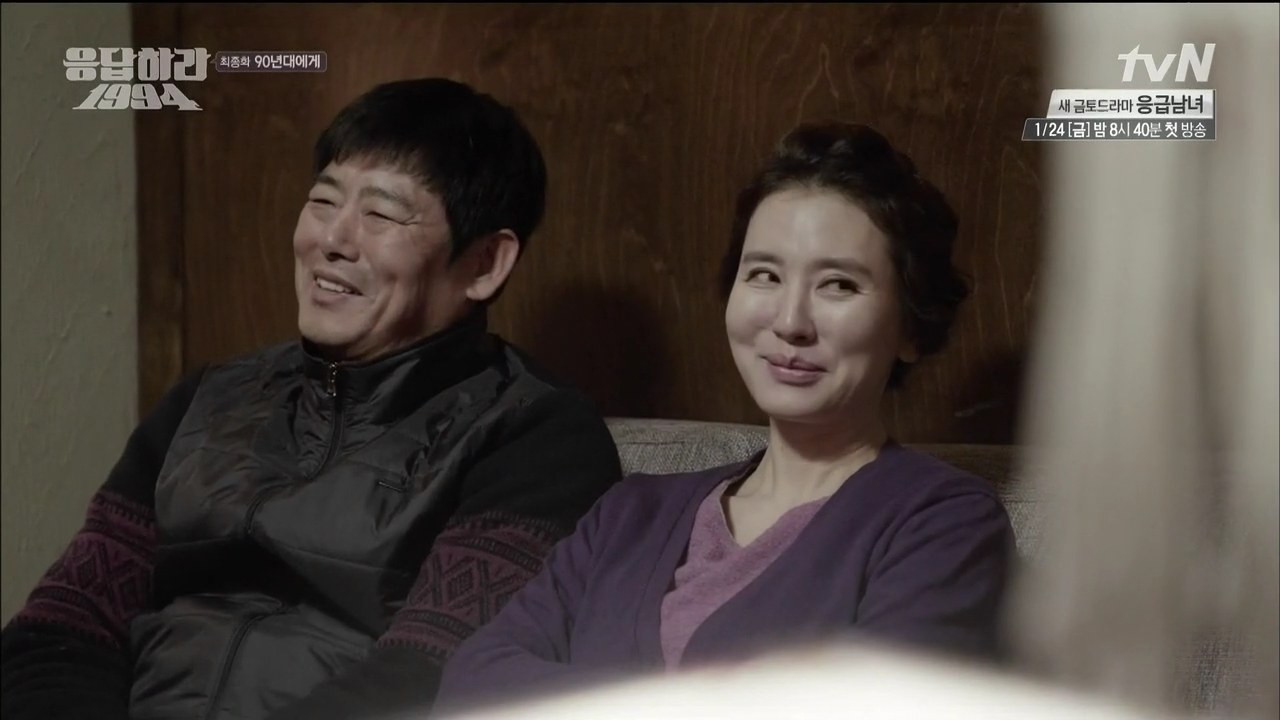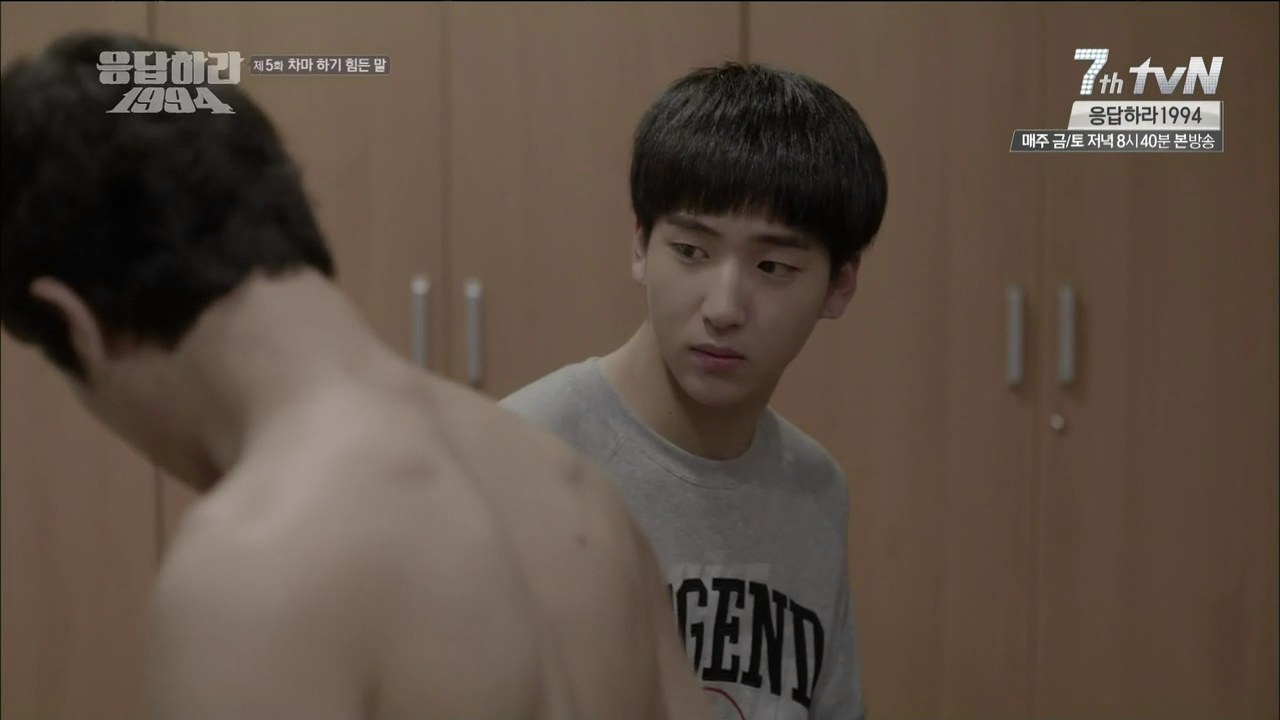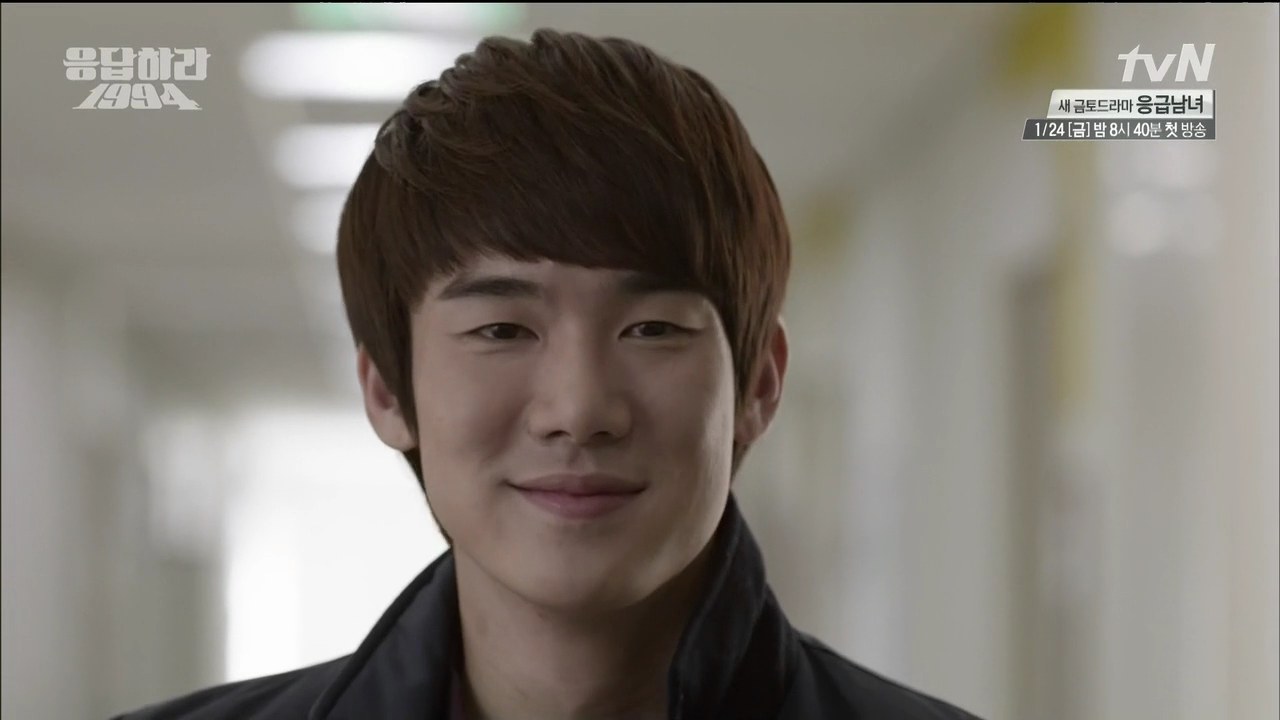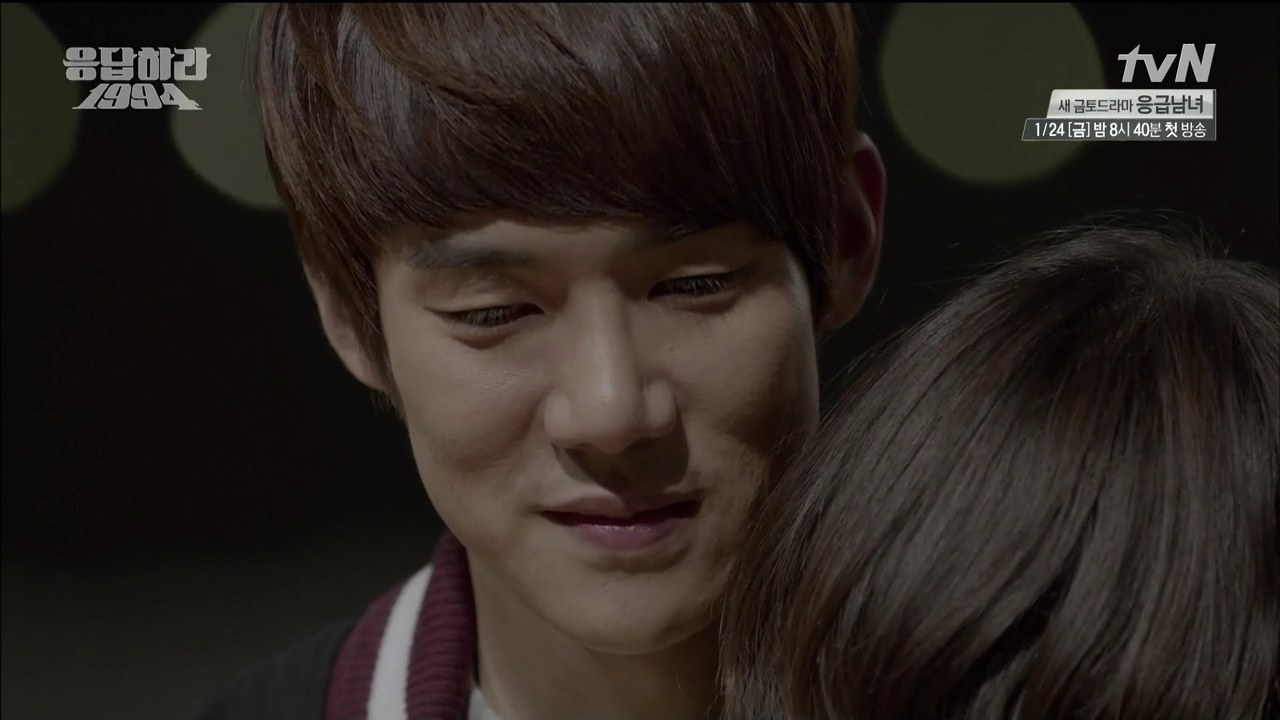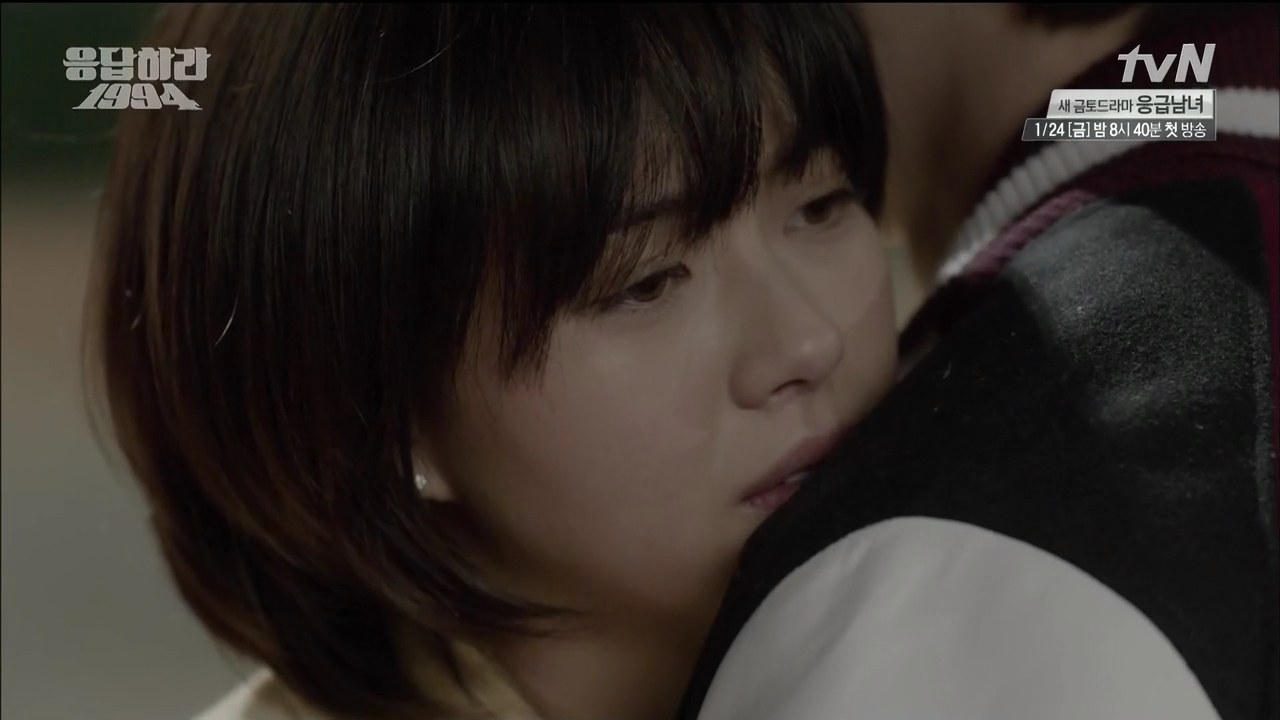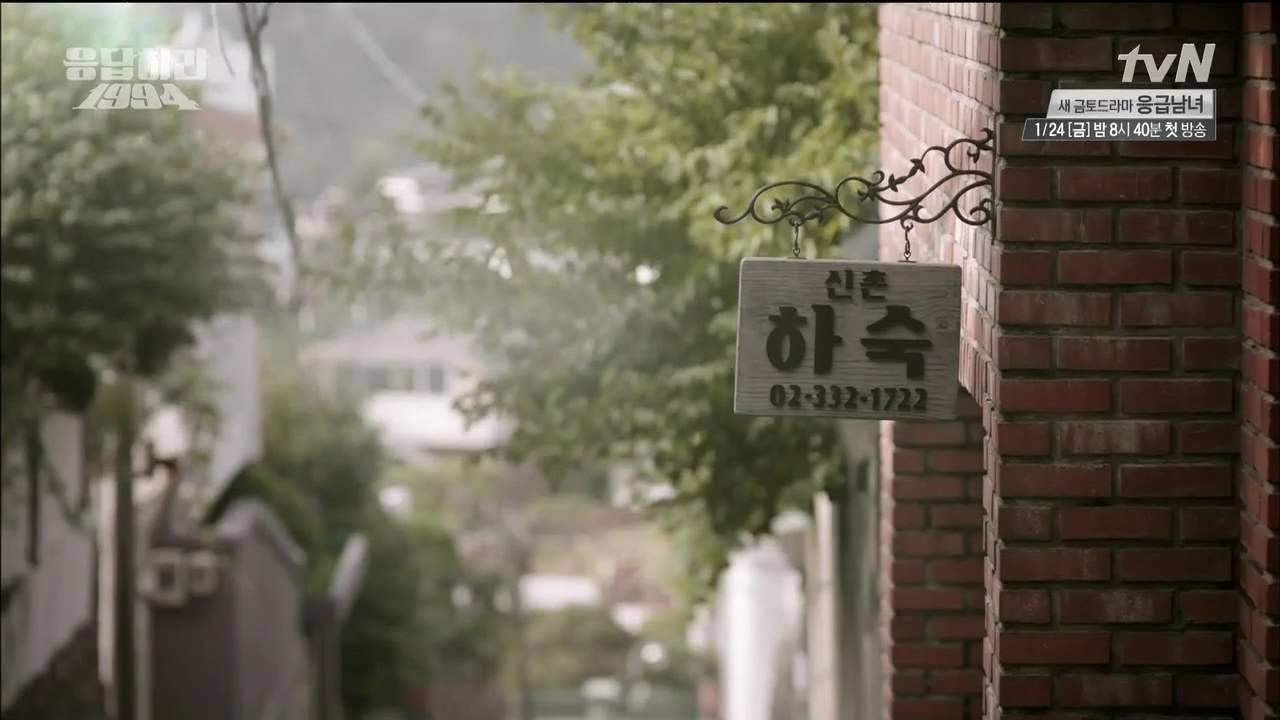TYPE OF REVIEW ![]() : GOOD OL’ REVIEW
: GOOD OL’ REVIEW
LOTS of spoilers.

So I am definitely late to the entire Reply/Answer Me hype, but finally managed to jump in last week. Instead of starting with 2012’s Answer Me 1997, I chose to watch the more recent Answer Me 1994 first.
One of my favorite things about Korean dramas is that their short, miniseries format allows for a wide variety of stories even if most fall into the same drama tropes. To find a few more original, risk taking or fresh concepts, the cable networks and the late night drama specials on the big three (or maybe just KBS?) are where to go.
tvN has been at the forefront of dramas that are both out of the box while still having mainstream appeal. And the Answer Me series certainly falls within that spectrum.
Another one of my favorite things about Korean dramas is when I stumble upon a drama that appears to be very Korean on the surface, yet ends up being very universal instead.
Answer Me 1994 is a perfect example.
While I hadn’t seen the first series when going into Answer Me 1994, I at least knew the main gimmick was to tease the identity of our heroine’s eventual husband for the entire run while also being a nostalgic look at the 90s.
For Answer Me 1994, our heroine is Na Jung, the only daughter of a couple running a Seoul homestay for college students from the countryside.
The identity of Na Jung’s husband appeared obvious halfway through even though much of the 2nd half of Answer Me 1994 tried to prolong what seemed meant to be an epic love story. By the end of the series, or really even a couple of episodes out from the finale, you started to care less about whether or not Na Jung and Trash ended up together and instead wished for more highjinks from the homestay family.
The “Who is it!?” gimmick is definitely an interesting and creative way to frame the series and may certainly be what first draws people in, along with the 90s nostalgia of course.
But for me, like many others, I stayed for the friendships. The coming of age story of a group of friends coupled with effective and fun nostalgia are the best things about Answer Me 1994. The charming and talented cast had excellent chemistry. From the very first time we meet the group of boarders and the family that hosts them to the moment they all leave the homestay for the final time; it was that journey that you cared about the most out of anything else.
Answer Me 1994 wasn’t so much about one singular story. It was about a group of characters and how they grew up together during an eventful and fast moving decade in Korea’s history and formed a bond that would last 20 years later and beyond.
And despite being set in Korea and highlighting its many historical events, celebrations and tragedies of the decade, Answer Me 1994 was still a universally relatable experience. You didn’t have to be Korean or even have grown up in the 90s to feel the effects of the time on the characters. Most, if not all of what the characters went through… the trials, the tribulations, the emotions, the feels… aren’t exclusive to Korean college students.
These are the universal experiences that makes a series like Answer Me 1994 so appealing and ultimately successful even if there are a couple of shortcomings.
And a few of those shortcomings can be best explained by going into detail and touching on each of our main characters. =]
At times Na Jung is a typical K-drama heroine; spunky and energetic, clever and smart, but when it comes to love, she loses her brain. There are times when she’s funny and charming and times when you just want to knock some sense into her. But even while the main premise of the series revolves around her, Answer Me 1994 is still an ensemble which allows you to give Na Jung a bit of a pass.
Her oppa, Trash, is pretty much the male version of a typical K-drama heroine. He can be the dashing male lead (a doctor!), but most of the time he’s an insane, hyper, strange man-child who’s in love.
Na Jung and Trash have some cute and fun back-and-forth, both before and after we learn they aren’t actually siblings. But when the path clearly starts moving toward their endgame, they start to lose their charm. Like I said earlier, especially when it became obvious what the final result would be, you wished the series would spend less time on prolonging the “Who’s it gonna be?” and instead deliver more of what made the show so engaging in the first place.
Samcheonpo and Yoon Jin’s love story ended up being much more believable and sweet while almost being as dramatic. Having a more typical couple alongside Na Jung and Trash’s roller coaster of a courtship helped keep things balanced. At the same time, having Haitai’s own misadventures in love gave Na Jung a platonic male best friend (despite more of the contrived keeping his number in the Na Jung’s husband lottery). That relationship was actually the most refreshing of all the little mini-friendships within the group.
Na Jung’s parents were the steady hands, helping to guide their pretty much adopted children along with their own flesh and blood. They are the catalyst for the entire series, being the ones who buy a large home in Seoul of course. But they use their experience to both hold the kids’ hands and steer them in the right direction, while also allowing them to learn and grow on their own.
Now let’s go. Binggeure. Oy vey. Binggeure might just be the worst developed character on the series. After seeing how his story ends, you might understand what the series was aiming to do with his character. He was confused and was trying to figure things out. Figure out a lot of things, including his sexuality.
But let’s be real here. That’s not the impression you get at all during the series before the big reveal. And thinking about that, you can’t help but think all the hinting and ambiguity with Binggeure’s affection towards Trash and his shy personality was nothing more than a way to score another Gotcha! moment. Maybe what makes the twist so disappointing is that you have him working out his feelings for 16 episodes then you introduce a random noona who is supposed to confirm he’s straight after just one night out drinking.
If anything, it seemed like he was forcing himself to fall for this female sunbae just to avoid having to be gay. Beard perhaps? That’s a great story for another drama, but not here. Instead of getting his own nice, poignant story like everyone else, Binggeure gets shortchanged. Making his endgame merely another contrived Gotcha! moment was a disservice to his character and horribly lazy.
And then there’s Chilbong, who is probably the most tortured and at the same time most invisible 2nd lead ever in a Korean drama. 2nd Lead Syndrome definitely applies here. Chilbong is the sweet guy next door. He’s a great friend. He’s a dumb jock with a heart of gold. And he’s a lovesick little puppy. You want to root for him. You want to see him happy and end up with the girl.
But as the Na Jung-Trash ship started to get further and further away from the dock, Chilbong just as quickly fell by the wayside. And in doing so, actually made him that much more rootable. For a show that relied too heavily in the How I Met My Husband gimmick to the detriment of the stories that you actually cared about, it did a poor job of making Chilbong or any of the other guys viable candidates to keep the gimmick interesting.
Chilbong endeared himself enough that you were looking for him in the middle arc of the series to shake the Na Jung-Trash lovefest up. Instead, they waited until the last couple of episodes to throw him a couple of bones which really only highlighted the missed potential for a more compelling love triangle. Those final episodes not only tortured poor Chilbong, it tortured the audience with hollow hope.
But while the characters’ stories can individually have flaws, together as a group, they provided a charming, relatable and nostalgic look at young love and friendship.
Sometimes all a drama series needs is sincerity and honesty and Answer Me 1994 was at its best when it had the friends in honest and sincere situations involving anything from school to the Asian financial crisis, from their favorite pop music to hometown pride. Sure, the husband guessing game may be a way for some to get into the series, but the real attraction lies in the performances of the excellent ensemble and the true to life and universal depiction of life in the 90s.

